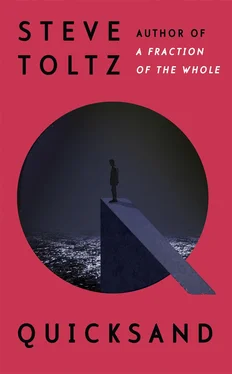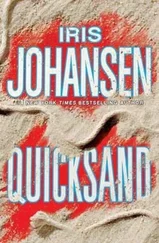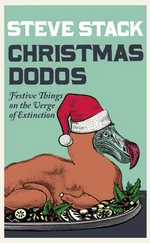I say, ‘I’m sick of looking at you and perceiving a smaller, meaner universe.’
He laughs and says, ‘Tough,’ then starts telling me about the guys he met in hospital, a quadriplegic who risked breaking a rib if he sneezed and had to be on constant vigilance against pollen and pepper and sunshine, another with a malignant melanoma on his spinal cord, and yet another who’d dived into an unseen sandbar and whose fusion of broken vertebrae was now a centimetre off, and how it was both unbearable and heartbreaking to be stuck in the smoking area with these unfortunate bastards who were already doing one-handed wheelies by the time Aldo had only learned to transfer to a toilet seat. I turn my gaze downward, stifle a groan, and write: I can’t imagine a sadder thing in the whole world than putting socks and shoes on those useless feet.
‘What are you writing now ?’
I show him. Anger is not one of Aldo’s usual go-to emotions, so I am taken aback when he bangs his fist on his chair’s tubular armrest and shouts, ‘I’ll make your publisher pulp it while your daughter watches!’
The bartender leans forward and says, ‘I said , keep it down,’ then turns up Van Morrison disagreeably loud.
Aldo holds a stiffened finger in the air. I think: Here we go again. He says, ‘You know how if we had time travel people would use it to go back short temporal distances to make premonitions and look like big shots?’
‘Yeah. And?’
‘Never mind. Fuck it,’ he says and puts on his aviator sunglasses. ‘I’m going for a ciggie.’ He wheels himself out onto the balcony, to the sea-rusted railings where gulls are perched and where he goes through half a box of matches lighting his cigarette in the infuriating wind. From a distance, he has the worn yet sleazy handsomeness of a cruise-ship magician. He flicks the half-smoked cigarette at a seagull, narrowly missing it, and shouts back to me, ‘AS PATRICK’S DADDY ONCE TOLD HIM: IT AIN’T A PROJECTILE IF IT AIN’T AIRBORNE!’
I shout, ‘WHO’S PATRICK?’
He shouts, ‘MY CELLMATE!’
The bartender shouts, ‘SHUT THE FUCK UP!’
Aldo gives him the finger, then moves like a storm front inside, towards the handicapped toilets. He rattles the door handle.
The bartender yells, ‘That one’s out of order. Use the downstairs one.’
Aldo swivels his chair and gazes down the steep metal staircase.
‘You’re supposed to have a handicapped toilet.’
‘It’s out of order.’
‘It’s the law!’
‘It’s out of order.’
Aldo takes a slow, deep breath and beckons me over. He turns around and rigidly faces the big window. I stand beside him, looking out at houses nestled in bushland with imbricated terracotta roofs and manicured lawns, at gnarled limestone cliffs, surfers carving up the lips of rising waves. He says, ‘With medical science improving at roughly the same rate as our environmental situation worsens, the most likely scenario is that the world will become uninhabitable at the precise moment the human race becomes immortal.’
‘So true!’ I write that down and say, ‘This is going to sound gay …’
‘Say it.’
‘You are my muse.’
‘Will you carry me to the toilet?’
‘Of course.’
He is not light in my arms. I carry him down the stairs and turn on my side to get him into the narrow cubicle. As I bend to gently lower him I can feel my back give out and — I have no choice, it’s a split-second decision, pure reflex — I drop Aldo onto the seat. He hits his head on the stainless-steel toilet paper dispenser. In a small, hoarse voice: ‘My kingdom for an intrathecal morphine pump.’
‘You’ve outlived yourself.’
‘I never wanted anyone to say of me, He’s breathing on his own now.’
‘Now do you understand why —’
‘You do not have my permission!’
‘Do I need it?’
Even back in high school he’d burden me with some unbelievable secret and beseech me to promise I wouldn’t tell anyone, then when I betrayed his confidence to a mutual friend, I’d discover he’d already told them the exact same thing. In any case, the fact is I am not the only one intrigued enough about his existence to document it. I have copious rivals who’ve already depicted his protracted wince on canvas, daubed his dead-eyed, petulant expression in earthworm pink and DayGlo yellow, drawn his convulsions like folds in fabric, sketched his legs to illustrate their significant loss of bone density, summoned his hunched form in glazed ceramic, in pastels and oils, in plaster and clay. I’ve viewed tidy little works in which can be seen the digitally animated collapse of his whole craniofacial complex, and murals of him face-planting into a quiver of arrows. My best friend has been cropped, doctored, photoshopped, bubblewrapped and shipped. I’ve glimpsed his tired grimace on glossy variable contrast paper so many times I’ve felt sorry for my own naked eye.
‘You going to stand there and watch?’
I go back upstairs to the bar and sit down. Clouds swim in a watery blue sky. It is loose, warm weather. I feel drowsy. The music is loud and I’m not sure I’ll be able to hear Aldo calling me from inside the toilet. I look over my notes and think: I’ll be annoyed if after writing a whole book, a photograph of his screaming face would have done just as well.
The bartender says, ‘You want something else?’
I sigh. ‘In 1929 Georges Simenon wrote forty-one novels.’
‘What?’
‘A bourbon and Coke.’
As the bartender pours, I light a cigarette.
‘Go outside,’ he says.
I keep the cigarette going, sucking deeply.
‘I’m calling the police.’
I laugh and open my jacket just enough to show my gun.
The bartender leans forward. ‘So even writers carry guns these days?’
I go, ‘You have no idea.’
The Long Gestation of an Idea
‘We make art because being alive is a hostage situation in which our abductors are silent and we cannot even intuit their demands,’ Morrell said in one of his bewildering conversational pivots, stabbing with his crooked finger the court documents I’d brought to school. This was my final year, a midwinter afternoon in the demountable after all my classmates had left. On the muted yellow wall, Blake Carney’s painting of a golliwog wearing a swastika had caught Morrell’s eye and he froze in front of it and said something I’m almost positive was: ‘Unused talent exerts downward pressure on the spirit.’ My uncertainty was due to the grating transportation soundscape — the school being situated by a train station on the intersection of a busy highway underneath a flight path — which meant I had to use all my concentration just to hear him. And I wanted to hear him. While traditionally our Zetland High art teacher was depicted in toilet-stall graffiti as a talking anus, I liked the guy; other than the burst capillaries on his nose, and the creases ironed into his clothes at random angles, he was a relatively well-preserved and mostly calm man, keyed-up only by absenteeism, pigeon feeding, obtrusive yawning, his own sinus infections and the creative spirit. Morrell paced the classroom like he wanted to give me a guided tour of it. He said, ‘We create for the same reason we do anything: fear of the alternative,’ then pirouetted on the threadbare carpet and scooped from his desk his own book— Artist Within, Artist Without (that he’d snuck onto the syllabus to the chagrin of Mr Hennelly, our weedy, terse headmaster) — and copied onto the blackboard, in perfect yet minuscule handwriting I had to squint to decipher, the following lengthy passage: Shamefully, doctors neglect to tell new parents that an increasingly common postnatal complication is that a small percentage of babies will grow into anthropologists in their own homes, as if they’d been conceived in order to study and then record the dreadful failings of their mother and father, who’ve no idea they’ve invited this cold-hearted observer into their lives. All these parents wanted was to produce cuter versions of themselves, poor bastards; instead they’re saddled with an unsympathetic informer who won’t hesitate to report them to the lowest authority — the general public. In other words, it is as the poet Czesław Miłosz once said: When a writer is born into a family, that family is doomed! (Exclamation mark mine.)
Читать дальше











